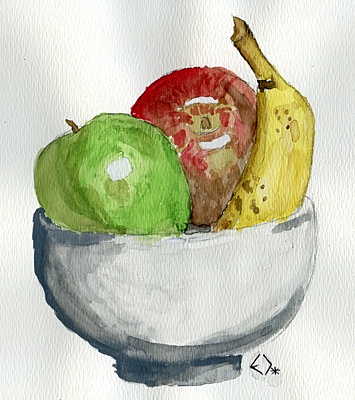All Nonfiction
- Bullying
- Books
- Academic
- Author Interviews
- Celebrity interviews
- College Articles
- College Essays
- Educator of the Year
- Heroes
- Interviews
- Memoir
- Personal Experience
- Sports
- Travel & Culture
All Opinions
- Bullying
- Current Events / Politics
- Discrimination
- Drugs / Alcohol / Smoking
- Entertainment / Celebrities
- Environment
- Love / Relationships
- Movies / Music / TV
- Pop Culture / Trends
- School / College
- Social Issues / Civics
- Spirituality / Religion
- Sports / Hobbies
All Hot Topics
- Bullying
- Community Service
- Environment
- Health
- Letters to the Editor
- Pride & Prejudice
- What Matters
- Back
Summer Guide
- Program Links
- Program Reviews
- Back
College Guide
- College Links
- College Reviews
- College Essays
- College Articles
- Back
A Sparkle of Youth MAG
I spin the white ball in my hand, feeling the smooth surface. Breathing in slowly and looking across the table at the imposing figure, I gently toss up the ball, beginning the match. At first glance, my opponent seems to have a chubby build; his round belly is a consequence of years of stress and lack of exercise. He springs forward with a youthful energy, returning my serve in a blur of white. The ball hits the table moments before I react. Looking dumb, I volley back a paddle of air. I stare at my opponent, who is grinning with delight. My dad.
A stern and frugal man, my dad pinches pennies and values his precious time. He always seems busy. Whether it is helping my sister in college, sending e-mails, or staring intently at a book, he always seems engrossed. My dad hates pi hua, or wasted time, instead choosing to squeeze the efficiency out of every second. “The world is run by the hardworking,” he says.
My dad is industrious even when watching movies, often researching the film ahead of time. I remember when we watched “Gladiator” he pointed out multiple historical inaccuracies. “In real life,” he interjected, “Emperor Commodus was killed by his gladiator trainer.”
“And,” he whispered, “in real gladiatorial fights, the gladiators rarely fought to the death because it was too great an expense to the slave masters.”
My sister has often compared him to a robot. She says it’s because of his control over his 30-minute naps and inhuman eating speed, but she really means his expression of feelings. My father often keeps his feelings to himself. Reading him is very hard.
Children often have trouble imagining their parents as children. Try as I might, I could never envision my father going to school and playing with friends. All humans have feelings, but my dad is one who rarely shows them.
My dad can often be seen in the house, staring into blank space, contemplating. Like a Stoic philosopher, he resigns himself to his thoughts and ponders. I never know if he is attempting to explain existence, untangling math equations, or determining the most efficient way to get from Trenton to Boston. When I gaze into his eyes, his thick-rimmed glasses conceal his thoughts and emotions.
Dad’s spectacles are clearer during our games of ping pong. He laughs with me, and sometimes at me. Unlike the lumbering machine hunched over a computer screen, this is a man free of concerns and full of energy. Ping pong is pi hua my dad spends with me.
“Your serve.” He tosses me the ball.
I send him a rapid serve with a hidden back spin, a clever trick he taught me. He grins as the ball, served too low, hits the net.
Actually, it isn’t really a net. It’s a line of tissue boxes. Our ping pong table is a weakly constructed setup of a wooden table lined across the center with tissue boxes. My dad has never bothered to buy a ping pong table or even tape the “net” together. When hit from the side, the tissue box will move out of position. I often wonder why such an easy fix to our problem could remain under the nose of the best problem solver I know.
When Dad was a child, he lived out his youth in a poor suburb of Shanghai. Juggling the stress of studying for college and his numerous part-time jobs, he played ping pong with his friends. Dad couldn’t afford a real ping pong table, so he used anything he could. “Street” ping pong was a staple of his youth and a haven from storms of problems.
Our ping pong is a fragment of his past.
I pick up the ball again, ready to serve. I spin it in my hand and feel the smooth surface. The ball bounces off my paddle and whizzes across the table, impacting moments before my dad can react. Looking dumb and swinging aimlessly, he volleys back a paddle of air. We both laugh.
Immersed in myself, I stare at my dad. Sometimes looking past his thick-rimmed glasses, I see that free-spirited child, wasting time in the streets of Shanghai.
I see a sparkle of youth.

Similar Articles
JOIN THE DISCUSSION
This article has 2 comments.
